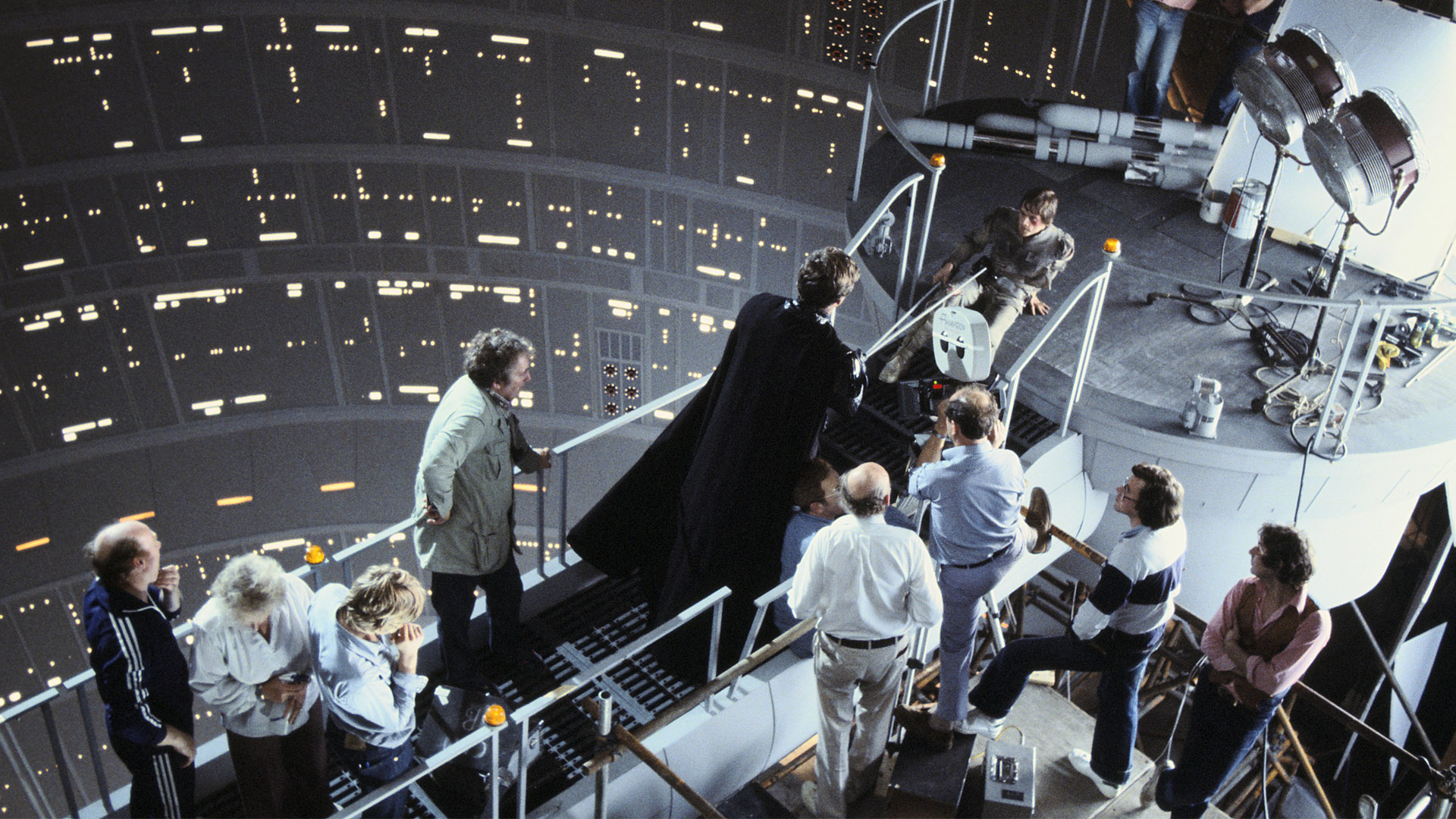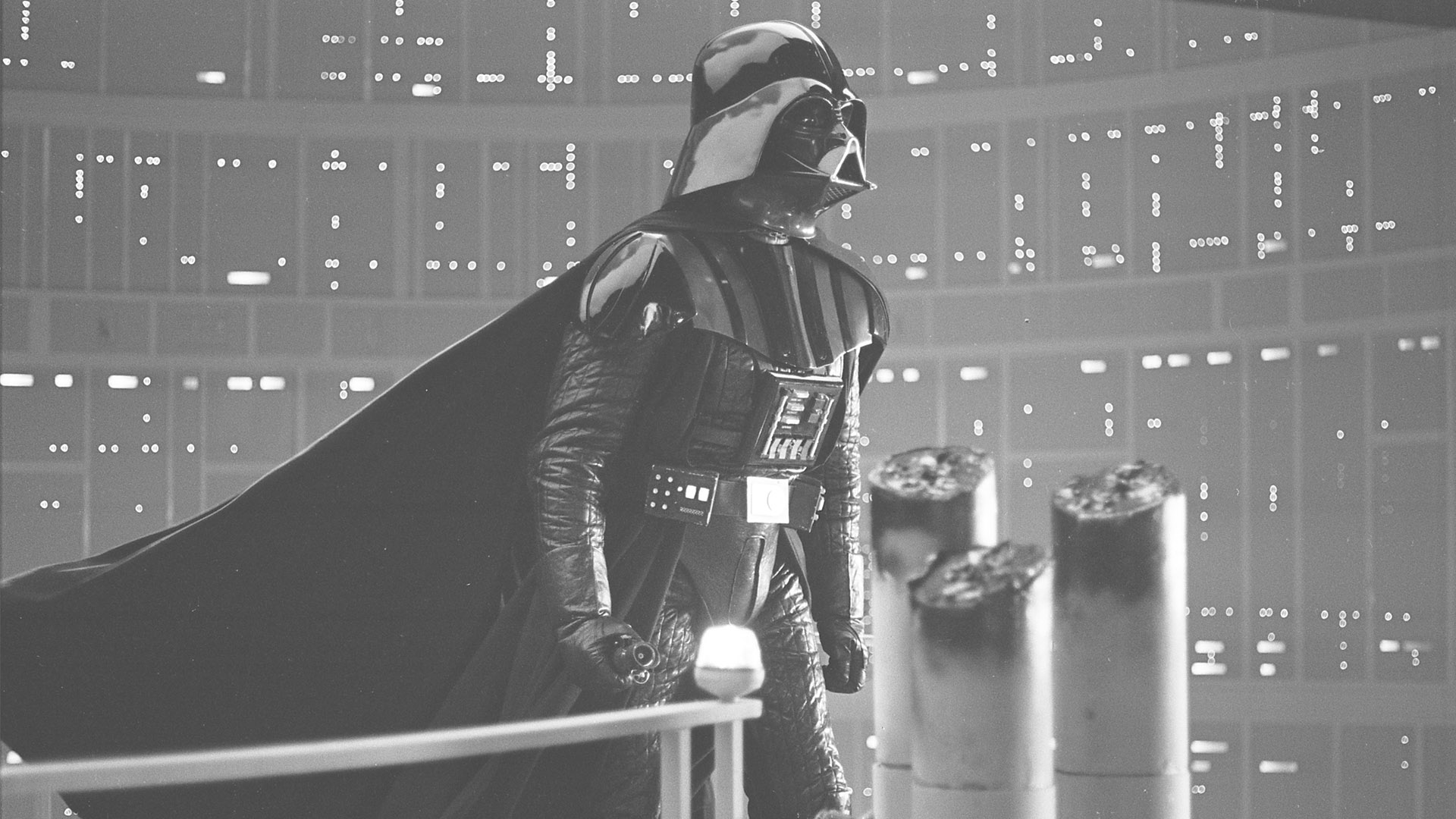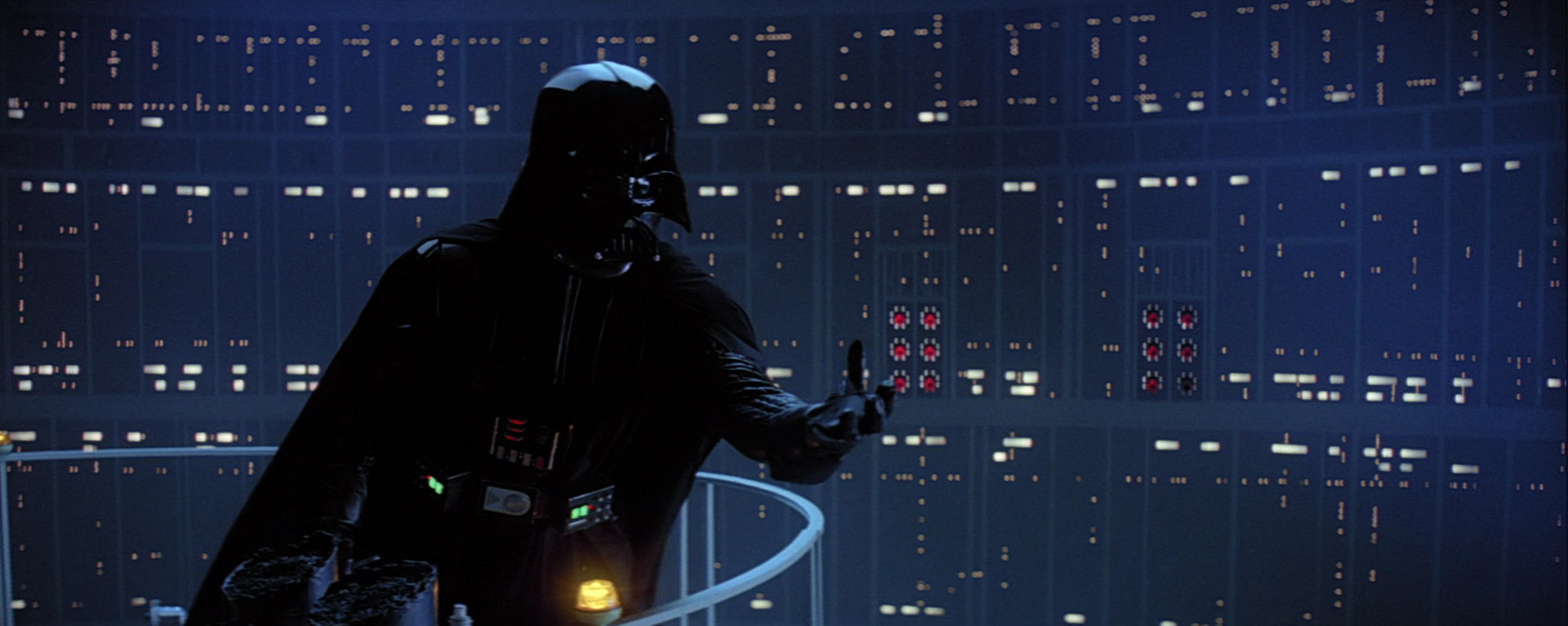Defining Moments: “I Am Your Father”
A Cliff-Hanger That Forever Changed the Star Wars Saga
“Defining Moments” is a continuing series exploring key scenes or sequences from Lucasfilm’s many productions. It examines storytelling craft, behind-the-scenes insights, and cultural legacies from each selection. Revisit an old favorite or discover something brand new…
Production: Star Wars: The Empire Strikes Back (1980)
In 1977, it wasn’t lost on audiences that Darth Vader had survived the events of Star Wars: A New Hope. His return in The Empire Strikes Back was highly-anticipated, and the character alone dominated the film’s promotional advertising. The film’s title implied the Rebel Alliance would be taking a hit, but few if any anticipated the personal revelation that would confront Luke Skywalker.
Chasing unclear visions of the future, Skywalker flies to Cloud City and is quickly locked into an over-matched duel with Darth Vader, whom Luke believes to be the murderer of both Obi-Wan Kenobi and his own father. Losing his hand to Vader’s lightsaber, he climbs onto a gantry perched above an endless chasm. The villain attempts to woo him with promises of shared dominion over the galaxy. Luke will not join him, so Vader chooses to impart a secret.
The dialogue became part of popular culture. But ironically, the line is often misquoted: “Luke, I am your father.” In fact, Vader responds to Luke’s claim that he’d killed the young man’s father. “No,” the villain says, “I am your father.” It’s a literal twist that tears away at the hero’s naivete, complicating the simplified view of “good vs. evil.” Suddenly, everything is suspect.
During production of Empire, George Lucas kept the details on a strictly need-to-know basis. Director Irvin Kershner wasn’t told until months into pre-production. Actor David Prowse, emoting inside Darth Vader’s costume, was told nothing, and spoke placeholder dialogue. Mark Hamill learned the truth moments before shooting the scene. Voice artist James Earl Jones kept the secret within his recording booth.
The reveal was, as one critic put it in 1980, “a puzzle piece falling into place in front of you though you’re unaware of the puzzle existing in the first place…” The romantic space opera entered a new dramatic level that kept audiences guessing for three long years before Star Wars: Return of the Jedi at last answered the question of whether the mysterious, strangely-alluring Darth Vader was lying. Could the villain be more than a mere antagonist? Could he in fact be the fallen hero?


Lucas O. Seastrom is a writer and historian at Lucasfilm.

